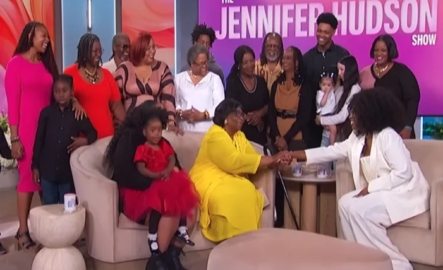In April this year, a judge in Miami vacated the life sentence of a Black man who prosecutors said was wrongfully convicted because of mistaken identity in 1991. Thomas Raynard James was convicted of the 1990 death of Francis McKinnon, largely based on the identification by an eyewitness who told jurors she watched him shoot her stepfather during a robbery in his Coconut Grove apartment.
James was 23 when he was convicted. He was released in April after paperwork was completed. A 32-year-old Miami-area lawyer led the process. Natlie Figgers, a lawyer only two years out of law school, was contacted by friends of James while he was in prison in 2020. They were raising money for his defense and wanted Figgers to help get him freed as James had been saying over the years that he had been wrongly convicted.
James’ case demanded a criminal lawyer. Figgers was a business and personal injury attorney but she took up the case after being told that no one was willing to. Those who had an interest in the case were also not ready to work for free. Figgers decided to read about the case. This was just some weeks before she gave birth to her son. After reading about the case, she was certain that she should take it up and help get James released even though she didn’t have much experience.
So six weeks after giving birth, she started an investigation that lasted 18 months. According to NBC News, “she banged on doors and rang doorbells. She pored over heaps of paperwork. She cold-called people who testified in the 1990 murder of Francis McKinnon and others related to the case, driving hundreds of miles to gather information and talk to at least 75 people about the case in person.”
Figgers told NBC News that she logged more than 2,000 hours researching and speaking with people about James’ case, ignoring the other cases she usually pursues. She then approached the Conviction Review Unit, an entity under the Florida Justice Institute, to share what she had found. The unit works to reverse wrongful convictions, according to NBC News. The unit looks at evidence presented to it and pushes for a person to be released if a convincing case is made. Figgers gave the unit perhaps more than enough evidence in 2021 for her client to be freed.
“I couldn’t stop until he was out. So, I kept giving them more. It became overwhelming evidence of his innocence,” she told NBC News.
None of the nine sets of fingerprints found at the crime scene belonged to James. James was jailed largely on the testimony of the eyewitness called Dorothy Wilson, who was the victim’s stepdaughter and was present at the time of the murder. Wilson identified James as the shooter but there was another man named Thomas James who lived close by and had a criminal past. That man was also a friend of Vincent Cephas Williams, another man convicted of robbing McKinnon that night.
The police got to know about these names through a tip line but when they searched “Thomas James” in their criminal database, they found Thomas Raynard James, who already had a gun possession charge. And so even though no physical evidence was ever found at the scene that tied James to the case, he was tagged as the murderer.
To make matters worse for James, he could not remember where he was on the night of the crime. In the end, he was wrongfully convicted because of mistaken identity.
In May 2021, Figgers approached Wilson, the prosecution’s key witness.
“She [Wilson] didn’t want to give any statements,” Figgers recalled. “She didn’t want to talk to people for years. When I went to interview her, she cracked the door open. I knew at that time she was giving me an opportunity to show her why she should do the right thing. It was such an emotional point for me, I couldn’t help but cry to her. And I told her, ‘If God tells you to give me a call when I leave, please give me a call. I’m going to answer. But I’m doing this because he is an innocent person. And I’m doing this because God put me here.’ And I left.
“Ten minutes later, she called me. I was driving. I pulled over. She asked me: ‘Why did you cry like that? Who is he to you? Are you related to him?’ I told her no. She asked, ‘Is he paying you?’ I said, ‘No. I’m doing this pro bono.’ She asked me how did I know it wasn’t him? I said, ‘Because I know.’ And she said, ‘I know it wasn’t him, too.’”
That’s all Figgers needed from her. James also took a polygraph test to back up the new evidence. He passed the test. “It was the last convincing evidence the CRU needed to recommend that James be freed,” as reported by NBC News.
After 32 years in prison for a murder he didn’t commit, James was finally freed. “I never asked anybody to believe what I was saying. What I did was say for any and everybody to simply admit that if what I was saying was true, that I had been wrongly convicted. But the only way you can reach that conclusion is to delve into the depths of my situation. Natlie Figgers did. I owe her my life,” James said.
Figgers is married to Freddie Figgers, an influential computer programmer and inventor who is behind Figgers Communication in Florida. She had worked there as head of HR.
Working to get James freed has made Figgers consider pursuing criminal law cases. “Criminal law was an area of law that I avoided. However, this cause is too important to avoid when so many wrongfully convicted are reaching out to me for assistance. Knowing you can save a life is something truly rewarding. Nothing compares to that,” said Figgers, who is also grateful to other state officials who helped her win.










